Life in India is a series of bilateral negotiations
finding the new equilibrium for the next superpower
When I landed in India last week, my friend came to pick us up. And as we got in his car and started to drive out, we went the wrong way inside the giant parking garage at Delhi airport where all directions look the same1.
But he drove intrepidly. With no hesitation, just looking for a direct way down, we soon came to a set of cones blocking an exit and a stern looking guard, who enforced the cone. I looked back to see where else we could go, to circle around, and instead my friend lowered the window and asked the guard if he could just move the cone. A series of negotiations took place, short and to the point, about the pain of having to drive around versus the practical ease of moving a cone, and the guard relented. We drove down.
Once we were out and in the thick of traffic, similar interactions showed up again. India, modern India, has well defined lanes and beautiful highways. It also has absolutely no sense of traffic norms. Every inch of space is seen as a battleground to be won.
Like little Napoleons every autorickshaw and car and honking motorcycle would try to shoehorn into the three inches that opened up in front. It’s like a game of whack-a-mole in reverse.
And everyone knows the score. You can almost see them constantly playing multi-participant chicken. “Good game” you can almost hear them thinking as you jump the car ahead where it shouldn’t have gone, just to block the bike that would’ve cut you off, while the rickshaw stands perpendicular to the flow of traffic playing the same dance and trying to cut across the roundabout.
This happened repeatedly across most walks of life over the next few days. To skip a line, to find parking, to get your concierge to buy something, to negotiate a safari booking that needs to get changed, to get a customised menu to eat, to argue against an unjust traffic stop, it goes on and on.
Life in India is a series of bilateral negotiations conducted a thousand times a day. And that drives the character of life here.
Now, I am seeing the country properly after several years. And it’s a major change.
Visible infrastructure has gotten much better. Roads are good, well maintained, and highways are excellent. They built 7500 miles last year, just as the year before. And they’re fantastic.
Air travel is great, and airports are absolutely spectacular. I used to live in Singapore and say that Changi is its true jewel, and can now say the same about Bangalore. The airport is gorgeous.
Even trains have gotten better, even if train stations aren't there yet. The number of beggars on the street has reduced. Shops got uplifted. Mobile phones are better and everyone has one. Payment infrastructure is aeons beyond the West. And it’s safe, which a country without a strong legal safety net and a lot of poverty arguably shouldn’t be. There’s no real urban crime.
Restaurants, bars, pubs, these are world class. Same for most shopping. Even delivery. You can order hot chai or a small glass of tonic or a cup of milk and it comes in 10 mins to your door.
Daron Acemoglu, the famous economist who recently won the Nobel prize, has extensively talked abotu about the importance of institutions in economic development2. And it’s true, institutions do matter. A lot. Property rights, restricting elite capture, supporting employment, these are all necessary aspects of helping a country progress. Built via ‘inclusive institutions’.
India has pretty good institutions in this view. Or at least far better than it used to have. The laws are well defined even though the legal system runs like molasses, state capacity is somewhat reasonably bounded. It’s not perfect by any means.
What it does not yet have and loses at least a percentage of GDP growth a year is on bad informal institutions. One might even call it culture.
Acemoglu considers the informal institutions endogenous, shaped by the foundational formal institutions rather than serving as foundational themselves. In this view, this is why Northern Italy exhibits higher levels of social trust and economic performance compared to the South. Or why we see varied success in transitioning to market economies.
Douglass North, another prominent economist, in his work on Institutions and Economic Performance wrote about the success and failure of economies as largely dependent on the institutions that structure human interaction. These aren’t just formal institutions, like laws or regulations, but also informal ones, like cultural norms.
The theory is that with sufficiently strong formal institutions, you can shape the culture. For instance by enforcing fare payments in subways, you can change the behaviour of people such that they don’t dodge fares.
Acemoglu however places only secondary importance to this. Or rather, he incorporates this as something that results from having strong formal institutions. And in doing so seems to beg the very question it answers - that having good institutions enables growth, and better institutions is what helps enables growth in the first place.
India seems to be contradictory on these accounts. It has somewhat competent formal institutions, fairly chaotic informal norms, strong culture that has both strong points and weak points in terms of getting things done, with a strong economy, that ideally should be even stronger and seems to be constantly held on a leash.
A simpler explanation might be that institutions are easy to set up well at the top, but incredibly difficult to make percolate into the whole society. Why would, after all, you decide to follow the traffic rules? Even in the West there’s no sufficient enforcement possible that can catch everyone who speeds. Or to stop people littering. But still we do it. So it can’t just be the stick trickling down from formal institutions. The informal bottom up behaviour clearly matters.
The question is what drives such behaviour and if how can we shift it.
Patrick Collison asked this question differently.
Why are so many things so much nicer in Switzerland and Japan?
Compared to almost all countries (including the US), Switzerland and Japan seem to possess much higher baseline execution quality in almost everything. Buses and trains are better (and more punctual); low-end food is tastier; cheap hotels are more comfortable; their airlines score higher on international indexes (despite not spending more per passenger); streets are cleaner; grocery stores and corner stores are nicer; ostensibly unremarkable villages have more beautiful buildings and are more pleasant places to spend a few days.
(This phenomenon, whatever it is, may extend even further. The homicide rates in both Japan and Switzerland are about a tenth of that of the US and less than half those of England, France, and Germany.)
What's going on? While wealth is clearly some of the story, it isn't just a matter of wealth: GDP per capita in Japan substantially lags that of the US. Nor does it seem to be a matter of historical wealth. (1900 Japan was even further behind.) It doesn't seem to be the simple result of long periods of stability. (Again, Japan.)
So, what exactly is this effect? Which things are truly better and by how much? Are these effects the result of the same kind of phenomenon in Switzerland and Japan? Is this in any way related to their topping the economic complexity index? Could other countries acquire this "general execution capital"? And are there meaningful trade-offs involved or is it a kind of free lunch?
Living in a country built off of bilateral negotiations for everything is simultaneously the libertarian dream and an incredibly inefficient way to do most collective things. Ronald Coase told us this in 1960.
if property rights are well-defined and transaction costs are low, private parties can negotiate solutions to externalities without the need for government intervention
But Indian life is dominated by transaction costs. Every time a driver pokes his car into a turn when the signal’s not for him it creates friction that ripples through the entire system. Every time someone has to spend effort doing a 1:1 negotiation they lose time and efficiency. Horribly so.
Just see driving. Half the time you're stuck behind trucks overtaking other trucks while dodging a motorcycle driving on the divider line, and this all but guarantees that your optimal speed will be at least 20% below the limit. (I measured this so n = 3, on 3 separate trips). What's the GDP impact of that?
The reason this isn't an easy fix is that the ability to negotiate everything is also the positive. When every rule is negotiable you get to push back on silly things like closing off a section of a parking garage with rubber cones by just asking. Life in the West feels highly constricted primarily because of this, we’re all drowning in rules.
People sometimes talk about it in terms of “low trust” vs “high trust” societies. Francis Fukuyama wrote about this, discussing how low-trust societies often develop more rigid, hierarchical structures and rely on informal personal networks. But I feel that misses what’s happening here. The negotiations aren’t a matter of trust, not when it’s about traffic, but trust is the result of a different cultural Schelling point. Trust isn't a one dimensional vector.
What causes the average driver in Indian roads to treat driving like a game of water filling cracks on the pavement? It's not trust, it's the lack of an agreed upon equilibrium. There's no norms to adhere to.
We might as well call those norms culture.
Normally this movement to the new Schelling point happens first as a result in better enforcement mechanisms. If the rules that exist start being applied much more stringently, then they just start becoming a part of normal behaviour.
Japan did this post war through an emphasis on group harmony and obedience to rules. Singapore through extremely stringent application of rules and education campaigns. Germany, again post war, had strict enforcement of laws. Sweden in the 30s and 40s focused a lot on building a culture of cooperation and emphasising the “social contract”.
By 2034, India would have added a few trillion dollars to its GDP. Just like we added incredible airports and highways and cleaner streets (yes, really) and metro systems and the best retail and F&B scene in the world, it will continue to get even better. And as it gets better people will behave better, as behooves the surroundings. This is the Broken Windows theory in reverse.
As individuals get richer, as some of those few trillion dollars trickle through the economy, the types of goods and services that they demand will change. Small broken up shops that double as sleeping quarters, open and with livestock wandering in and out, would change. We will start seeing the same gentrification as we saw elsewhere, but we will also see better social norms become more common.
India remains a land of conundrums. It contains enough chaos that causes increased transaction costs and holds much of potential progress back, a large gap to potential GDP, sticking like so many barnacles on the hull. More collective game theory, where you don’t need to be a greedy algorithm, where you can rely on other people’s behaviour.
All growth stories are stories of cultural transformation. Cultural shifts often require deliberate effort and collective will. Not just South Korea, Singapore and China, but also Brazil, with “jeitinho brasileiro” holding it back, Rwanda focusing on unity, Botswana on legal frameworks and reducing corruption.
On-the-ground cultural shifts are reflexive with government policies, but they also move to their own beat. The success of Swachh Bharat, to eliminate open defecation made substantial progress through building infrastructure but also campaigns for behaviour change.
But the framework is clear, to move away from bilateral negotiations to a Coasian equilibrium. That’s the next cultural progress milestone we need to get to.
To be fair to the parking garage, I, and he, have gotten lost in shopping malls before
What *is* an institution however remains a highly contentious topic



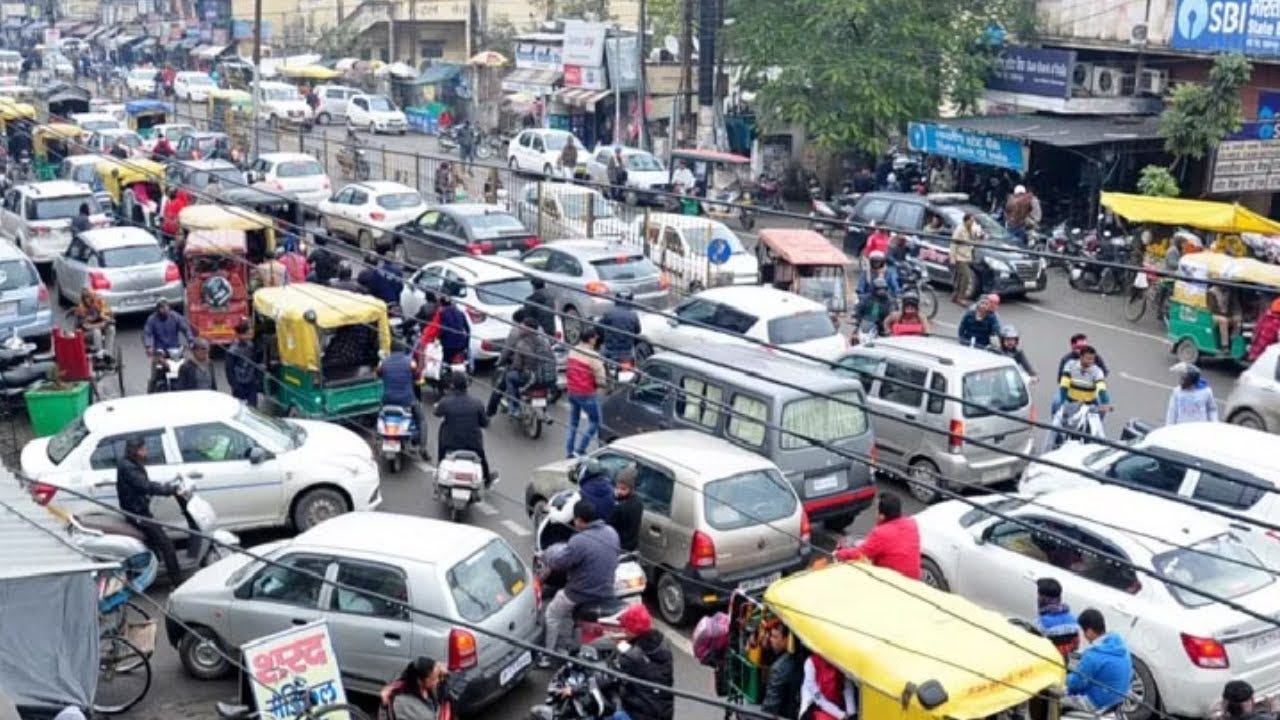
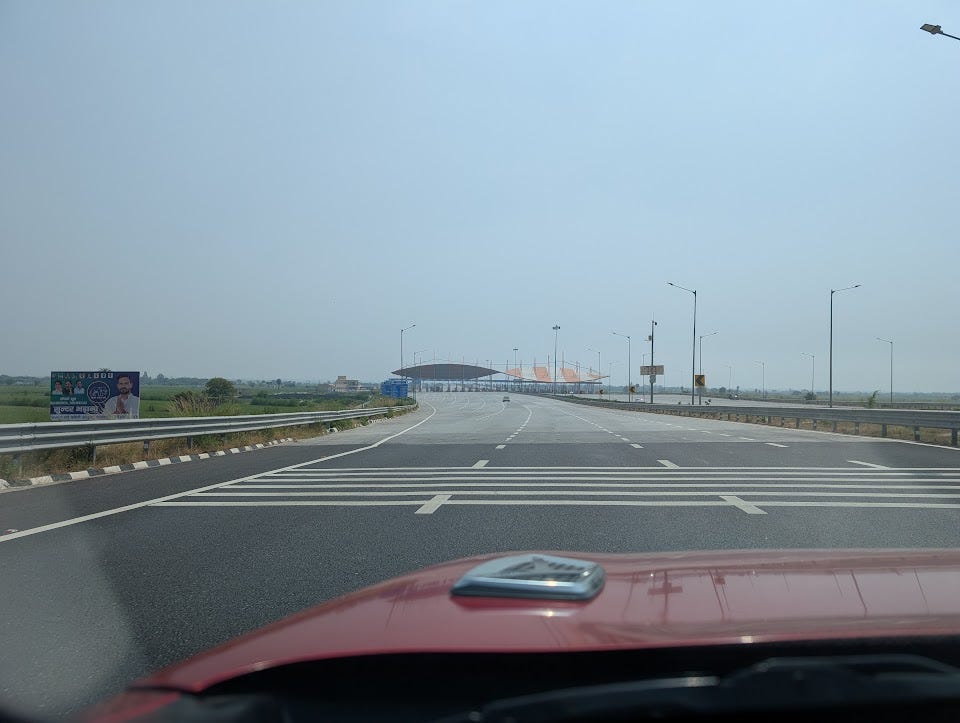
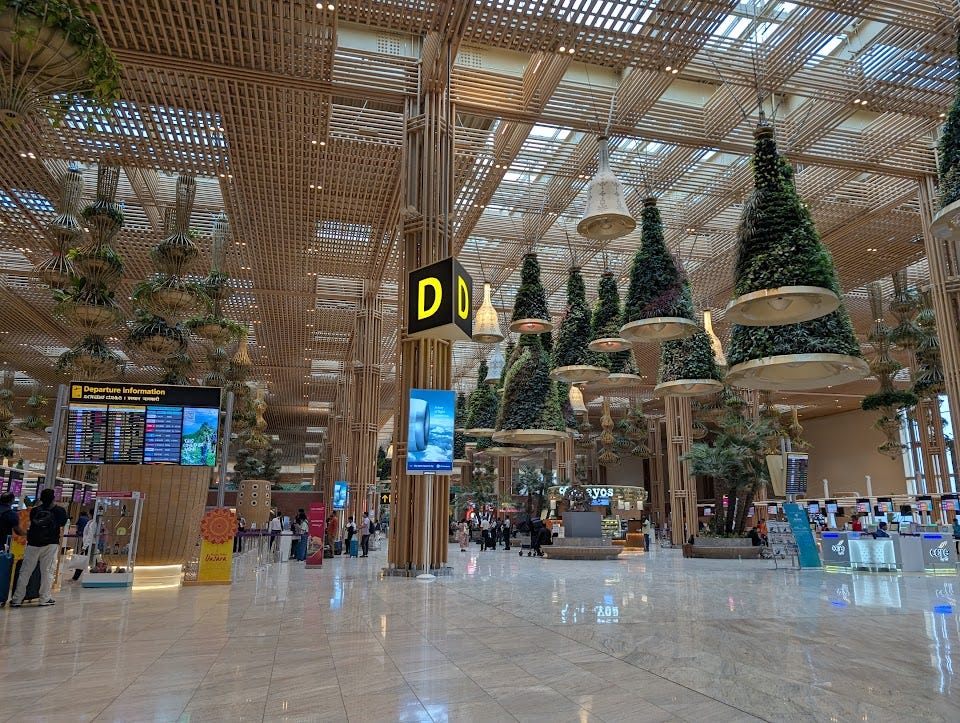
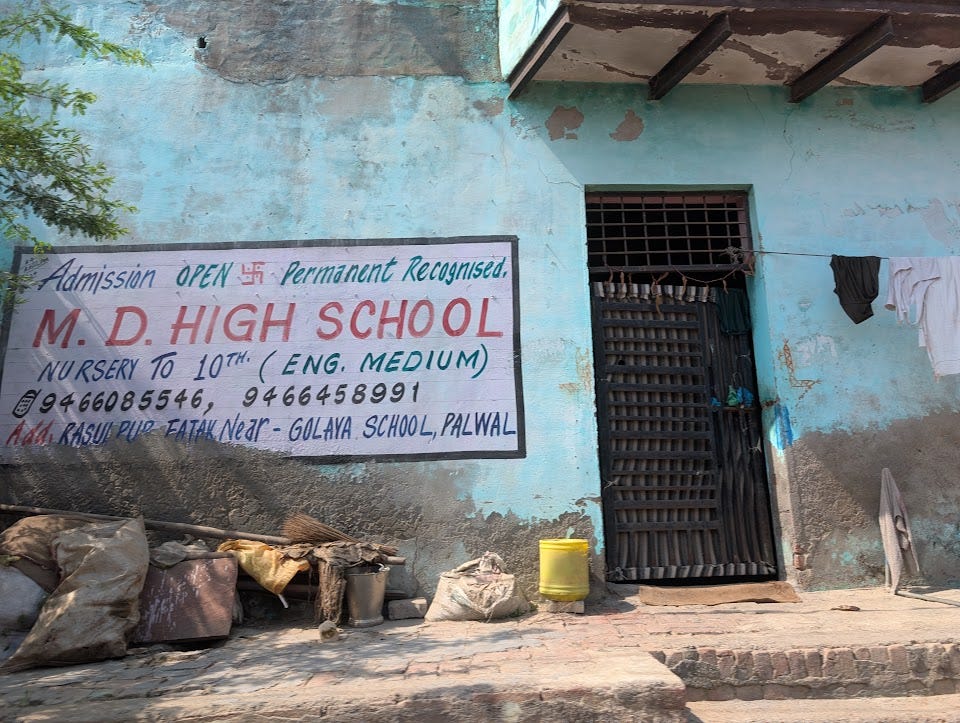
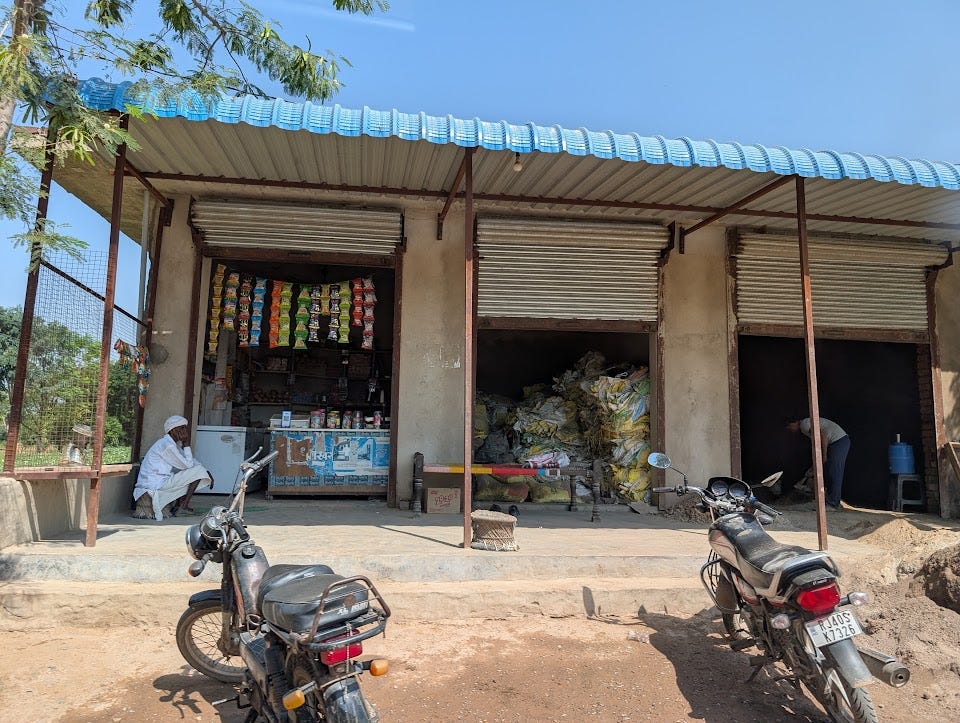
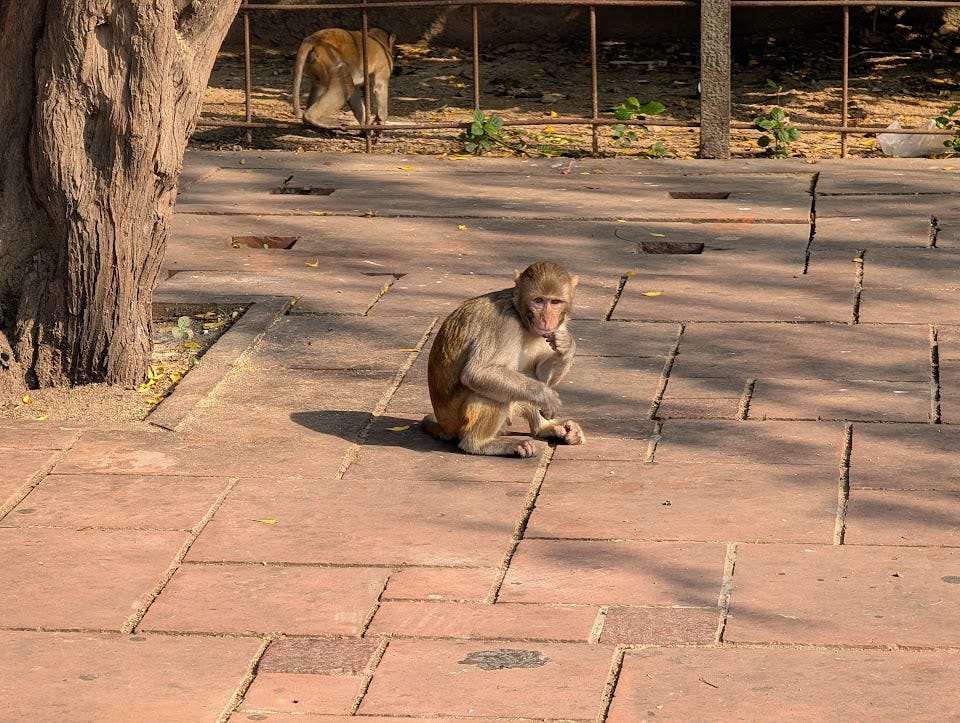
"To skip a line, to find parking, to get your concierge to buy something, to negotiate a safari booking that needs to get changed, to get a customised menu to eat, to argue against an unjust traffic stop, it goes on and on."
I cannot tell you how much i related to this line. I don't even know if most Indian's notice it, a bit like do fish notice water. The first time i noticed it was when I came back to India after having been in america for 2 years.
I think the most unfortunate part of this is the game theoretic dynamic, where following the rules will just put you at a loss. Not cutting the line will just result in being slow. This then leads to a culture that valorises the negotiation skills - you are a genius if you manage to do some jugad and not follow the rules.
Re: "What causes the average driver in Indian roads to treat driving like a game of water filling cracks on the pavement? It's not trust, it's the lack of an agreed upon equilibrium. There's no norms to adhere to."
Yes, there is - or was - a norm to adhere to. I learned it in 1984 from ICRISAT's research director, Kanwar Lal Sahrawat. He taught new ex-pat arrivals at ICRISAT: "In the US you go on the right, in the UK you go on the left, and in India, you go on what is left". So it was - and still is.